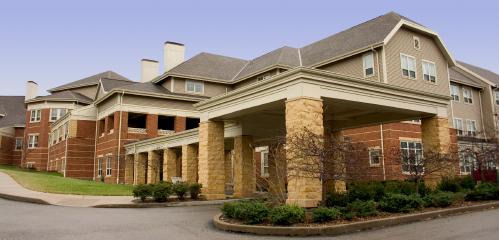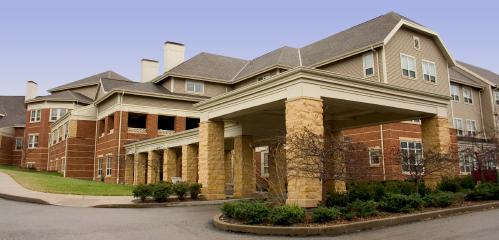Residential Care Home Insurance: Standard Elderly Care Coverage
Specialized insurance protection for residential care homes providing standard elderly care services, covering facility operations, resident safety, and regulatory compliance
Why Residential Care Home Insurance is Essential for Elderly Care Facilities
Operating a residential care home for elderly residents involves significant responsibilities and complex risks that require specialized insurance protection. From ensuring resident safety and wellbeing to managing regulatory compliance and facility operations, residential care homes face unique challenges that standard commercial insurance cannot adequately address. The vulnerable nature of elderly residents, combined with strict regulatory requirements and high duty of care standards, creates substantial liability exposure that demands comprehensive protection.
The financial consequences of incidents in residential care homes can be devastating, with potential claims ranging from resident injury and neglect allegations to regulatory enforcement actions and facility closure orders. Without proper residential care home insurance, operators face catastrophic financial exposure that could result in business closure, personal bankruptcy, and the inability to continue providing essential care services to vulnerable elderly residents.
Core Components of Residential Care Home Insurance
Professional Indemnity and Care Liability
Comprehensive protection for care-related professional liability:
- Resident care and treatment liability coverage
- Professional negligence in care planning and delivery
- Medication administration and management errors
- Care plan development and implementation failures
- Staff supervision and training inadequacies
- Resident assessment and monitoring failures
- Duty of care and safeguarding obligations
Public and Employers Liability
Essential liability coverage for care home operations:
- Resident injury and accident claims
- Visitor and family member injury protection
- Staff workplace injury and illness coverage
- Contractor and volunteer liability protection
- Property damage and third-party claims
- Manual handling and mobility assistance injuries
- Slip, trip, and fall incident coverage
Buildings and Contents Insurance
Property protection for care home facilities:
- Care home building and structural coverage
- Resident accommodation and communal areas
- Specialized care equipment and medical devices
- Furniture, fixtures, and resident belongings
- Kitchen and catering equipment protection
- Emergency and safety equipment coverage
- Garden and outdoor facility protection
Business Interruption Protection
Financial coverage for operational disruptions:
- Lost revenue from reduced occupancy
- Temporary accommodation and relocation costs
- Additional operational expenses during disruption
- Staff wages and benefit continuation
- Regulatory compliance and remediation costs
- Alternative care arrangement expenses
- Reputation recovery and marketing costs
Elderly Care-Specific Risks
Resident Safety and Wellbeing
Comprehensive risks associated with elderly resident care:
- Falls and mobility-related injuries
- Medication errors and adverse reactions
- Choking and swallowing difficulties
- Wandering and security incidents
- Skin integrity and pressure sore development
- Infection control and disease outbreaks
- Mental health and behavioral challenges
Care Quality and Standards
Risks related to care quality and regulatory compliance:
- Care Quality Commission inspection failures
- Inadequate care planning and delivery
- Staff competency and training deficiencies
- Record-keeping and documentation failures
- Safeguarding and protection inadequacies
- Dignity and respect standard breaches
- Family and resident complaint escalations
Staffing and Management Challenges
Human resource and operational management risks:
- Staff recruitment and retention difficulties
- Inadequate staffing levels and skill mix
- Training and competency maintenance
- Supervision and management oversight
- Disciplinary and performance management
- Agency and temporary staff coordination
- Staff wellbeing and support requirements
Types of Residential Care Home Operations
Standard Residential Care
- Personal care and daily living assistance
- Accommodation and meal provision
- Social activities and companionship
- Basic health monitoring and support
- Medication administration and management
- Family liaison and communication
Dementia and Memory Care
- Specialized dementia care environments
- Behavioral management and support
- Secure accommodation and wandering prevention
- Cognitive stimulation and therapy programs
- Family education and support services
- End-of-life care and palliative support
Respite and Short-Term Care
- Temporary care and family support
- Assessment and transition services
- Emergency and crisis accommodation
- Rehabilitation and recovery support
- Flexible care arrangements and packages
- Integrated health and social care services
Regulatory Compliance and Standards
Care Quality Commission Requirements
Essential regulatory compliance for care home operations:
- Registration and licensing requirements
- Fundamental standards of care and treatment
- Safe, effective, caring, responsive, and well-led criteria
- Regular inspection and assessment processes
- Improvement notice and enforcement action responses
- Provider information return and data submission
Health and Safety Obligations
Workplace and resident safety requirements:
- Risk assessment and management systems
- Fire safety and emergency evacuation procedures
- Infection prevention and control measures
- Manual handling and mobility assistance safety
- Food safety and nutrition standards
- Medication management and administration protocols
Safeguarding and Protection
Resident protection and safeguarding obligations:
- Safeguarding policies and procedures
- Staff training and awareness programs
- Incident reporting and investigation processes
- Multi-agency working and cooperation
- Deprivation of Liberty Safeguards compliance
- Mental Capacity Act and best interest decisions
Financial Protection and Sustainability
Revenue Protection
Protecting care home income and financial stability:
- Local authority contract and fee protection
- Private resident fee and payment security
- Occupancy level and capacity optimization
- Seasonal and market fluctuation management
- Bad debt and payment default protection
- Regulatory compliance cost coverage
Operational Cost Management
Managing care home operational expenses:
- Staff wage and benefit cost protection
- Utility and facility maintenance expenses
- Food and catering cost management
- Equipment and supply cost coverage
- Insurance and regulatory compliance costs
- Training and development expense protection
Technology and Equipment Protection
Care Technology Systems
Protecting essential care home technology:
- Electronic care planning and record systems
- Medication management and administration technology
- Resident monitoring and alert systems
- Communication and family liaison platforms
- Financial management and billing systems
- Staff scheduling and management software
Medical and Care Equipment
Specialized equipment protection for elderly care:
- Mobility aids and assistive equipment
- Bathroom and personal care equipment
- Kitchen and dining assistance devices
- Emergency and safety equipment
- Therapeutic and rehabilitation equipment
- Comfort and quality of life enhancements
Staff and Training Considerations
Care Staff Requirements
Essential staffing and competency requirements:
- Qualified and experienced care staff recruitment
- Appropriate staffing levels and skill mix
- Continuous professional development and training
- Supervision and performance management
- DBS checks and safeguarding clearances
- Health and fitness for care work assessments
Training and Development
Ongoing staff development and competency maintenance:
- Mandatory training and certification programs
- Specialized elderly care and dementia training
- Health and safety training and updates
- Safeguarding and protection awareness
- Medication administration and management
- Communication and family liaison skills
Common Residential Care Home Insurance Claims
Resident Care and Safety Claims
- Resident falls and mobility-related injuries
- Medication errors and adverse reactions
- Pressure sores and skin integrity failures
- Choking and swallowing incident claims
- Wandering and security breach incidents
Care Quality and Negligence Claims
- Inadequate care planning and delivery
- Staff negligence and competency failures
- Safeguarding and protection inadequacies
- Family complaint and dissatisfaction claims
- Regulatory enforcement and compliance failures
Property and Facility Claims
- Fire and water damage to care home facilities
- Equipment breakdown and replacement costs
- Theft and security-related losses
- Vandalism and malicious damage incidents
- Weather-related property damage
Cost Factors and Premium Considerations
Residential care home insurance premiums are influenced by:
- Care home size and resident capacity
- Types of care services provided
- Resident dependency levels and care complexity
- Staff qualifications and training levels
- Facility condition and safety standards
- Claims history and risk management practices
- Regulatory compliance record and CQC ratings
- Location and local authority relationships
Additional Protection Options
Cyber Insurance
Protection for care home data and technology systems.
Employment Practices Liability
Coverage for employment-related claims and disputes.
Directors and Officers Insurance
Protection for care home management and decision-making liability.
Legal Expenses Insurance
Coverage for legal costs and regulatory defense expenses.
Key Person Insurance
Financial protection if critical care home personnel become unavailable.
Choosing the Right Residential Care Home Insurance
When selecting residential care home insurance, consider:
- Comprehensive coverage for all care-related risks
- Adequate liability limits for elderly care operations
- Insurer experience with care home claims
- Regulatory compliance support and guidance
- Risk management and loss prevention services
- 24/7 emergency response and crisis management
- Competitive premiums with specialized protection
- Flexible coverage options for different care types
- Claims handling expertise and support
- Additional services like training and consultation
Risk Management Best Practices
Resident Safety and Care Quality
- Comprehensive risk assessment and management
- Regular care plan review and updates
- Robust incident reporting and investigation
- Continuous staff training and development
- Family communication and engagement
- Quality monitoring and improvement programs
Regulatory Compliance and Standards
- Regular CQC inspection preparation and readiness
- Policy and procedure review and updates
- Staff competency assessment and training
- Documentation and record-keeping excellence
- Safeguarding and protection protocol maintenance
- Continuous improvement and action planning
Financial and Operational Management
- Occupancy optimization and resident satisfaction
- Cost control and budget management
- Staff recruitment and retention strategies
- Equipment maintenance and replacement planning
- Insurance coverage review and optimization
- Business continuity and emergency planning
Protecting Your Residential Care Home Operation
Operating a residential care home for elderly residents represents one of the most challenging and rewarding sectors in healthcare provision. The responsibility for vulnerable elderly residents, combined with complex regulatory requirements and significant liability exposure, creates unique risks that demand specialized insurance protection. From ensuring resident safety and wellbeing to maintaining regulatory compliance and managing operational challenges, care home operators face daily pressures that can result in substantial financial consequences.
The elderly care sector operates under intense scrutiny from regulators, families, and the public, where even minor incidents can escalate into major claims and reputational damage. Without comprehensive residential care home insurance, operators are vulnerable to catastrophic losses that can threaten not only their business but also their ability to continue providing essential care services to vulnerable elderly residents who depend on their support.
Don't let uninsured care home risks threaten your elderly care operation. Comprehensive residential care home insurance provides the specialized protection and professional support necessary to operate with confidence while maintaining the highest standards of care and regulatory compliance.


 0330 127 2333
0330 127 2333





























